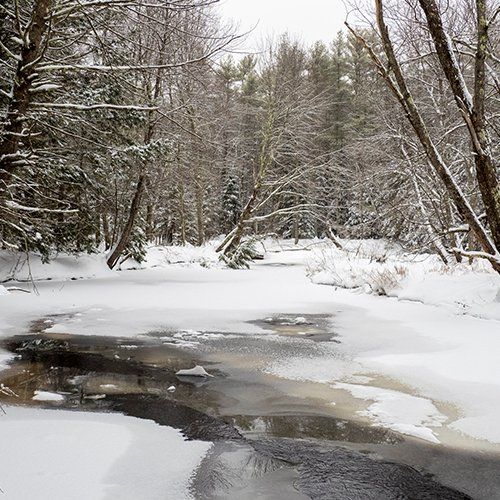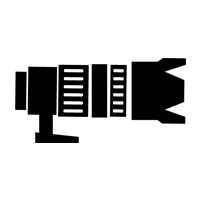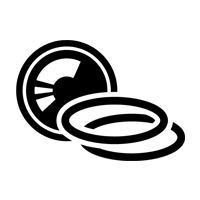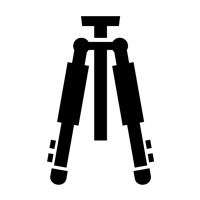Get the Most From Your Lesson
In order to get the most from your workshop, we want to stress upon you the importance of knowing some basic information about your camera. Each camera manufacturer, even each camera, is different from any other. We know a lot, but it is almost impossible for us to know each different camera on the market. Every button, every knob, even the words the manufacturer uses to describe a function is different from one camera to another. So, get out the owner's manual and learn a few simple functions on your camera before you get to us. This will help us all start on the same page and not use everyone's time for something you could learn at home. If you no longer have your owner's manual, you can download them typically from the camera brands website. Of course, we are always willing to help you with any questions before your class. We just ask you to give us a few days' lead time to help you resolve your issue.
If you have particular questions about photography, we recommend you write them down, so you don't forget. Never be hesitant to ask about anything dealing with photography, no matter how silly it seems. You may be helping someone else in the class by bringing up the topic.
Come Prepared for Your Photography CLass
In order to get the most out of your workshop, we want to make sure you come prepared for what you will encounter, so we have prepared a list of things to keep in mind. First of all, what you should wear.
Clothing for Hot Days
Shorts are fine but keep in mind we are located in the woods of Maine, so bug spray is definitely in order. Many prefer loose-fitting longer pants. If we are heading into the river, shorts might be the best, but long pants are also acceptable for this. Remember that dark clothing tends to attract mosquitos, so lighter clothing is suggested. You know yourselves better than we do, so dress appropriately for the weather. If you like a rain jacket, by all means, bring one. One thing is for sure, no matter what the weather, you are likely to get dirty. You may find yourself kneeling or lying in the dirt, and clothing tends to get a bit dirty in these conditions. If we venture into the river, or you like the angle of standing in the stream, your feet are going to get wet. This is part of the fun of it, so embrace it and find your inner child, and have some fun. Boots or waterproof hiking boots are fine for the meadow if it's raining, but not the best if we wade into the river to make images of frogs or damselflies. For this, we recommend old sneakers or at least footwear that you don't mind getting completely submerged. Water Shoes for the beach are not the best because of submerged branches, rocks, and other obstacles that allow your foot to slide in the water shoes.
Clothing for Colder Days
If you live here, you already know that weather in early spring, fall, or winter can be a bit chilly. If it's a warm day, it can quickly become a wet miserable, cold day, so keep this in mind. If nothing else, bring a warm layer and rain jacket and keep it in the car. Long pants and long sleeve shirts are in order. Your hat might be a good way to keep the sun off your head, but it also is a good way to keep you warm. Even on sunny days, some folks like to wear rain pants just to keep the wind off, and it is good protection if we are kneeling on the wet ground photographing mushrooms in the fall. Once again, you know yourselves better than us, so don't shy away from gloves or long johns if you tend to be cold. I will let you in on a little secret, one of my favorite camera accessories in colder weather is a thermos filled with hot tea. You're welcome to bring that too. Layers are always a good way to keep warm as you can adjust them to fit the current temperature, always keeping in mind that a rain jacket serves as a good barrier to moisture if we are lying on the ground working. If it is not summer, the chances are that we will not be going into the river, so good waterproof shoes or hiking boots are recommended. We still might go into muddy places.

Pack Your Lunch
We highly recommend that you plan on lunch with your newfound photo buddies after class. This is always a time when questions arise that someone forgot to ask, stories are told that bring us all closer together, or someone starts talking about an accessory that you might be interested in as well. You never know what we might talk about, and it is a way to extend your learning potential while enjoying a sandwich. We call it Photo Lunch. We will have a cooler to keep your food and drinks cold, and you never know whether some cookies might be floating around the picnic table. After lunch, you may also want to hang around the farm to take advantage of the wildflower meadow, the bird hides, or some other photo opportunity here at the farm. We want you to be better photographers, and practice makes perfect. We're not in the habit of kicking you out right after class, we want to make sure you have some time on your own to put into practice what you have learned. This is one of the reasons we hold the formal classes in the morning.
A Little About Cameras
Now for the fun stuff, camera equipment. We have no pre-requirements as far as camera equipment goes, we will work with the equipment you already have. You don't even need to have your own camera. If you are new to photography or would like to try out some new lenses, Our great friends at OM SYSTEM have generously provided us with a selection of cameras for our students too use during our classes. For the student who owns multiple lenses and other camera gear, I will say that if you own it bring it. Long lenses, short lenses, bring it all. You may not use it, but it's better to have it than to suffer the frustration of having to say, "you know, I didn't think we would need that." You are with us to learn, and we feel every lens excels at something, let us help you discover what your equipment can do. No worries if you don't have some of the gear mentioned. As stated, we will work with what you have. However, if you are interested in possibly getting something new to add to your camera bag, this might be a good time to let us help you learn how to use it. We are always happy to consult with you before your class and help you with questions before you buy.

Long Lens
People think that long lenses are only good for things far away, but we often use them while we are photographing close up in the wildflower meadow to get in close without disturbing the butterflies. You also never know what may pop up at the bird hide or in a tree.

Tele-Converters
Again, a very handy piece of kit in the meadow, but also perfect for birds in the forest or some other place on the farm.

Wide Angle Lens
We have some great landscape opportune ties here at the farm and in the surrounding area. We also sometimes use wider angle lenses to make wildlife landscapes. That's when we get our subject close to the lens, but the properties of wide-angle lenses also include some of the landscape behind our subjects.

Mid Range Lenses
In days of old, your camera might have come with a 50mm or 55mm lens. The so-called normal lens. It is called that because it sees the world very close to how our normal eyes see it. You will be surprised how much mid-range lenses are used for the most stunning photographs.

Extension Tubes
If you are unfamiliar with extension tubes, they are an accessory that we feel should be in every kit. They allow you to photograph macro photography without the expense of buying a dedicated macro lens. They normally come in sets of two or three tubes and are a very inexpensive way to use many of your lenses as macro lenses. As the name suggests, they are a tube that goes between your camera and lens. They do not have any glass, so you don't need to buy an expensive set, and we often recommend third-party tubes such as Kenko. They allow you to retain auto exposure and autofocusing and will only set you back about $100 to $125 to purchase a set. You buy them to fit your particular camera brand. We use them a fair amount here at the farm, and this is one piece of gear that we do recommend for you to have. We have three sets of Extension tubes, a set for each Olympus, Canon, and Nikon, and we are happy to lend them out for you to use.

Tripod
Now is your chance to learn to fall in love with your tripod. If you have one, bring it.

Cable Release
This will be really handy for landscapes or some macro work.

Filters
We use two filters extensively here at the Photo Farm: a polarizer and either a graduated neutral density filter or a straightforward neutral density filter.

Spare Battery
It would be very helpful if you brought a spare battery fully charged.
Call us today to learn more!
ADDRESS:
165 Little River RD, North Berwick, ME. 03906
165 Little River RD, North Berwick, ME. 03906
BUSINESS HOURS:
- Mon - Sun
- -




